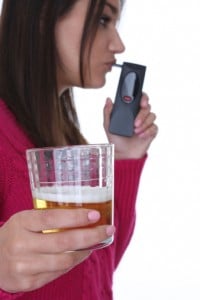Attorneys routinely explore these 6 scenarios for possible use in a DUI defense.

The Equipment Was Not Properly Calibrated
Police must follow specific guidelines when maintaining their breath testing equipment. Failure to do so can result in the equipment giving bad readings. If you can prove that more than 10 days or 150 uses had gone by without a recalibration, you can cast significant doubt on the results of your blood test in court.
The Test Was Administered Too Soon
Police must wait at least 15 minutes before administering any DUI breath tests to guard against the possibility of mouth alcohol affecting the result. If you are observed to take a drink, burp, or vomit during this time, the waiting period must start over. This is the only way to ensure that the test is measuring alcohol from deep within the lungs rather than from the mouth.
Your Diet Affected the Result
It is possible for breath testing equipment to get fooled by acetone in the breath and mistake this for alcohol. If you are on a low-carb diet, your body may be burning fat for energy, which results in the production of ketones and then acetone. This acetone can get carried on your breath where it may contribute to a high BAC reading. This same phenomenon can affect individuals who are fasting.
Your Medical Condition Affected the Result
Individuals with gastrointestinal reflux disease, heartburn, or acid reflux may produce falsely elevated breath test readings because of the flow of stomach acid back into the esophagus and/or the mouth. Individuals with uncontrolled diabetes can also give high BAC readings due to acetone produced in their bodies as a product of incomplete digestion.
Your Blood Alcohol Was Rising
Alcohol can take anywhere from 50 minutes to 3 hours to fully absorb into your system. This means that in the period directly after imbibing, your blood alcohol is “on the rise,” meaning that more and more alcohol is being absorbed. It is possible that your BAC was within the legal limit while you were driving, but after being stopped it rose just enough to push you over the limit. In this case the test does not prove that you were intoxicated at the time you were driving.
The Test Operator Allowed Environmental Contamination to Affect the Sample
Acetone from paint, external alcohol from cleaning agents, or residual alcohol from a prior test may sometimes interfere with the results of a breath test. Normally, there are safeguards in place to prevent this such as testing ambient air in between each breath test to ensure that a 0.0 reading is achieved and/or using a new mouthpiece for each test. However, if the test operator fails to conduct or record the “air blank” test or use a new mouthpiece, this could open the door to the possibility of an environmental contamination claim.




